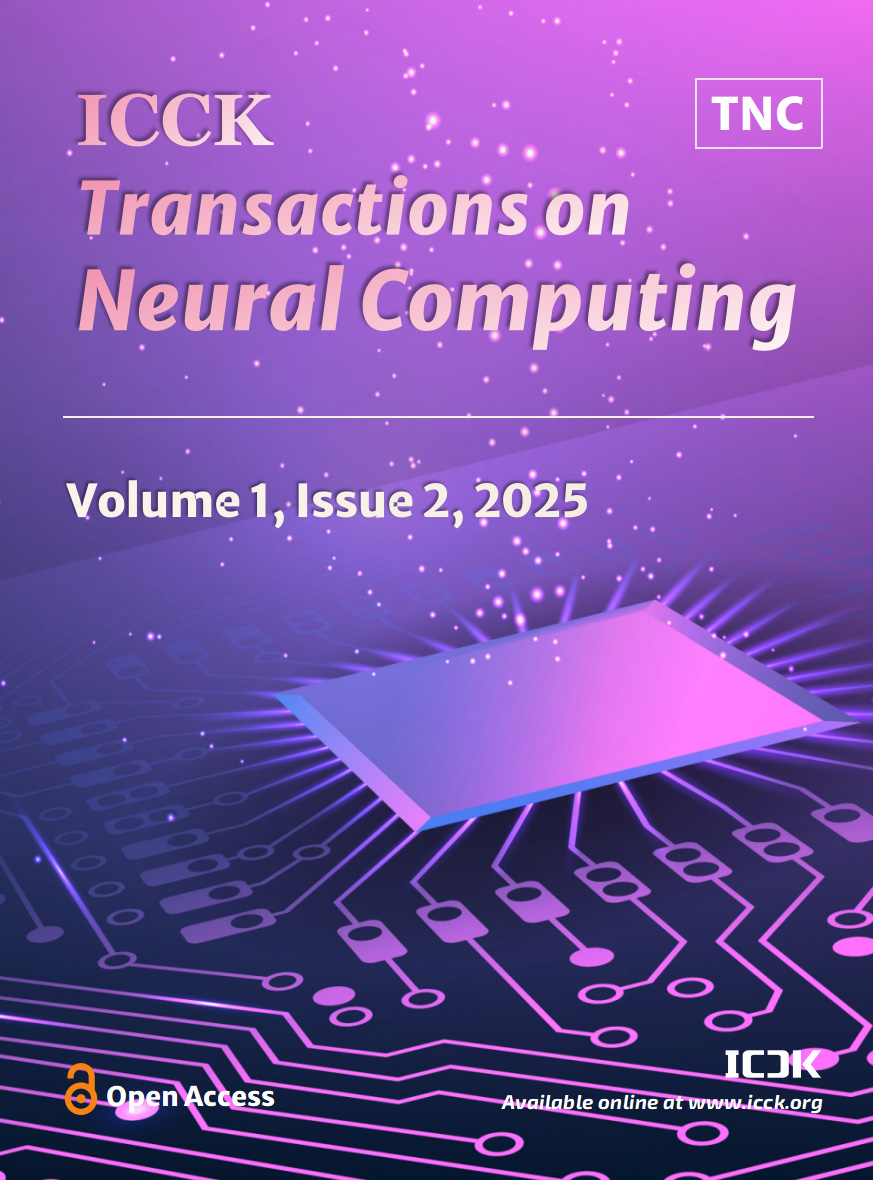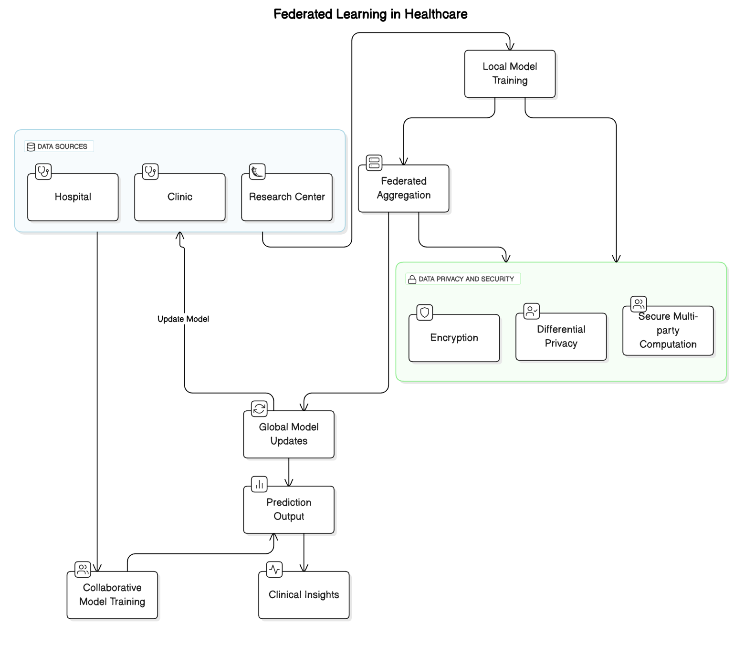Abstract
The quick rate at which healthcare has accepted digital technologies has generated several sensitive medical record data. Though this data has huge potential for innovative medical research and personalized things in health care, it also brings with it a huge future worry for the safety and privacy of patients. Protection of sensitive patient data access is the main obstacle of our time; thanks to Federated Learning (FL) companies in these fields are not only reviewing data for fraud control but also are using this data for planning cancer treatment. This paper narrated FL to be the core technology used in solving the most important privacy and security issues with the health information-sharing process. Among the main contributions is a thorough analysis of the state of the overall application of FL in healthcare together with the presentation of the basic technical principles of FL as well as the listing of the same FL's communication overhead, model inaccuracies, and adversarial attacks. In addition, the paper states possible solutions in the improvement of FL's robustness like the ones provided by the inclusion of the state-of-the-art security measures such as secure aggregation, differential privacy as well as blockchain integration. The results reveal the prospect of FL transforming healthcare data management into a secure framework for rapid innovation and also maintaining strict privacy compliance.
Data Availability Statement
Data will be made available on request.
Funding
This work was supported without any funding.
Conflicts of Interest
The author declares no conflicts of interest.
Ethical Approval and Consent to Participate
Not applicable.
Cite This Article
APA Style
Rao, F. (2025). Federated Neural Learning Techniques for Enhancing Privacy and Security in Distributed Healthcare Data Processing and Management. ICCK Transactions on Neural Computing, 1(2), 78–86. https://doi.org/10.62762/TNC.2025.356075
Publisher's Note
ICCK stays neutral with regard to jurisdictional claims in published maps and institutional affiliations.
Rights and Permissions

Copyright © 2025 by the Author(s). Published by Institute of Central Computation and Knowledge. This article is an open access article distributed under the terms and conditions of the Creative Commons Attribution (CC BY) license (
https://creativecommons.org/licenses/by/4.0/), which permits use, sharing, adaptation, distribution and reproduction in any medium or format, as long as you give appropriate credit to the original author(s) and the source, provide a link to the Creative Commons licence, and indicate if changes were made.


 Submit Manuscript
Edit a Special Issue
Submit Manuscript
Edit a Special Issue

 Copyright © 2025 by the Author(s). Published by Institute of Central Computation and Knowledge. This article is an open access article distributed under the terms and conditions of the Creative Commons Attribution (CC BY) license (https://creativecommons.org/licenses/by/4.0/), which permits use, sharing, adaptation, distribution and reproduction in any medium or format, as long as you give appropriate credit to the original author(s) and the source, provide a link to the Creative Commons licence, and indicate if changes were made.
Copyright © 2025 by the Author(s). Published by Institute of Central Computation and Knowledge. This article is an open access article distributed under the terms and conditions of the Creative Commons Attribution (CC BY) license (https://creativecommons.org/licenses/by/4.0/), which permits use, sharing, adaptation, distribution and reproduction in any medium or format, as long as you give appropriate credit to the original author(s) and the source, provide a link to the Creative Commons licence, and indicate if changes were made. 